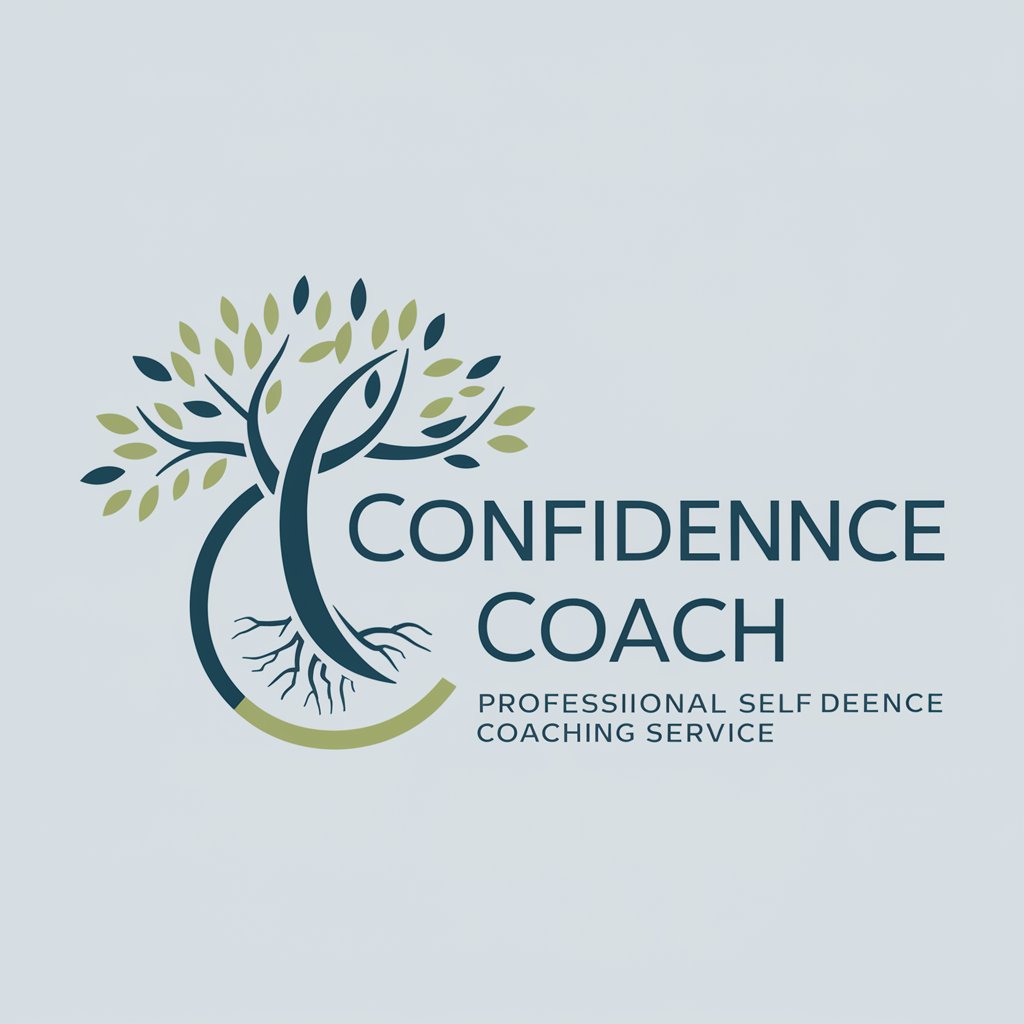
Confidence Coach - Tailored Confidence Building

Welcome to your journey towards confidence with Confidence Coach!
Empowering You with AI-Driven Confidence
What challenges are you currently facing in building your confidence?
Share a recent success you've had and how it made you feel.
Describe a situation where self-doubt held you back.
What goals do you have that would benefit from increased confidence?
Get Embed Code
Introduction to Confidence Coach
Confidence Coach is designed as a supportive partner to help individuals overcome self-doubt and unlock their full potential. This role is particularly crucial in addressing the challenges posed by past experiences, social conditioning, or limiting beliefs that often hinder confidence and success. A Confidence Coach is equipped with empathy, emotional intelligence, adaptability, and a solid foundation of knowledge and experience in related fields such as psychology, counselling, or life coaching. These skills enable the coach to tailor their approach to each individual's needs, guiding them through their journey of personal and professional growth. For example, a person struggling with imposter syndrome might work with a Confidence Coach to recognize and focus on their strengths, leading to significant achievements such as pursuing promotions or leadership roles they previously thought were out of reach. Powered by ChatGPT-4o。

Main Functions of Confidence Coach
Empathy and Active Listening
Example
Creating a safe space for clients to express fears and concerns, enabling personalized coaching strategies.
Scenario
A client feels unable to share their challenges in the workplace due to fear of judgment. The Confidence Coach's empathetic listening helps the client open up, leading to tailored advice and support.
Emotional Intelligence
Example
Guiding clients in managing their emotions and navigating challenging situations effectively.
Scenario
A client dealing with anxiety before public speaking sessions. The Confidence Coach employs emotional intelligence to teach strategies for managing these feelings, improving the client's public speaking skills.
Adaptability and Flexibility
Example
Customizing coaching techniques to meet the specific needs, goals, and preferences of each client.
Scenario
Adapting coaching methods for a client who responds better to visual learning techniques, using visual aids and exercises to boost confidence.
Building Confidence through Achievements
Example
Encouraging clients to identify and celebrate their achievements to foster a positive mindset and self-belief.
Scenario
A client underestimates their accomplishments. The coach helps them create a 'success journal' to regularly document and celebrate successes, big or small.
Practical Strategies for Overcoming Self-Doubt
Example
Implementing strategies to reframe failures as learning opportunities and to develop resilience.
Scenario
A client fears taking on new challenges due to a fear of failure. The coach introduces the concept of 'learning from failure,' helping the client to see setbacks as growth opportunities.
Ideal Users of Confidence Coach Services
Professionals Facing Imposter Syndrome
Individuals in corporate or creative fields who achieve success but feel unworthy or doubtful of their accomplishments. Confidence coaching can help them recognize their worth and embrace their achievements.
Aspiring Entrepreneurs
Those looking to start their own business but held back by fear of failure. Coaching provides them with tools to reframe their fears, take calculated risks, and pursue their entrepreneurial dreams with confidence.
Students and Young Adults
Individuals struggling with social anxiety or confidence issues that impact their academic performance or social interactions. Confidence coaching offers strategies for anxiety management, effective communication, and active class participation.
Individuals Seeking Career Advancement
Employees aiming for promotions or leadership roles but hindered by self-doubt. Coaching helps them develop the confidence to assert their capabilities and work towards their career goals.

How to Use Confidence Coach
Step 1
Visit yeschat.ai for a complimentary introduction without the need for registration or ChatGPT Plus.
Step 2
Explore the diverse tools and resources available, including articles, interactive exercises, and motivational stories tailored to building confidence.
Step 3
Engage with the Confidence Coach by sharing your personal goals, challenges, and any specific areas you wish to improve upon.
Step 4
Utilize the personalized guidance provided, incorporating the strategies, exercises, and techniques into your daily routine to enhance your confidence levels.
Step 5
Regularly reflect on your progress and achievements, adjusting your goals and strategies as needed, with ongoing support from Confidence Coach.
Try other advanced and practical GPTs
Confidence Companion
Empower your potential with AI

Confidence Coach
Empower your mindset, transform your life.

Conversational Confidence
Empower your speech with AI

Confidence Coach
Empower Your Self-Assurance with AI

SEO Blog Post - Article GPT
AI-driven tool for effortless SEO articles
5why 追问法
Uncover and solve problems efficiently

Confidence Evaluation
Empowering informed decisions with AI-powered debate

解卷录
Unlock Ancient Wisdom with AI

口述记录员
Transforming Speech into Structured Text with AI

古龙风云录
Immerse yourself in legendary wuxia tales, powered by AI.

异世录
Craft Your Own Alternate Universe Tale

问天录
Empower Your Curiosity with AI

Frequently Asked Questions about Confidence Coach
What qualifications does a Confidence Coach have?
A Confidence Coach possesses a blend of empathy, emotional intelligence, adaptability, and knowledge from fields such as psychology or counseling. Though formal certification isn't mandatory, reputable coaches often have experience in guiding individuals to overcome self-doubt and enhance self-confidence.
Can Confidence Coach help with professional growth?
Absolutely. Confidence Coach provides strategies and exercises tailored to overcoming imposter syndrome, enhancing public speaking skills, and asserting oneself in professional settings, thereby fostering professional growth and opportunities.
Is Confidence Coaching suitable for students?
Yes, students can significantly benefit from Confidence Coaching. It helps in managing social anxiety, improving communication skills, and fostering a positive mindset, enhancing both academic performance and classroom participation.
What if my confidence issues stem from deeper psychological concerns?
While Confidence Coach can significantly aid in overcoming self-doubt, it's important to recognize its limits. For deeper psychological issues, it may be advisable to seek assistance from licensed therapists or counselors in conjunction with coaching.
How do I measure my progress with Confidence Coach?
Progress can be measured through self-reflection on personal growth, achievement of set goals, increased comfort in challenging situations, and feedback from personal and professional relationships. Regularly updating your goals and strategies with Confidence Coach is key to continuous improvement.





